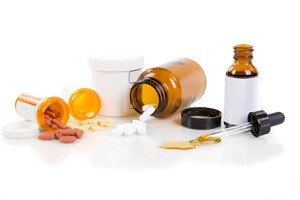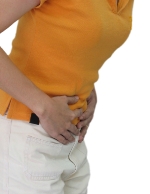Colestid

Brand name: Colestid
Generic name: Colestipol hydrochloride
Preparations: tablets, granules for suspension
Uses for IBS:
Colestipol hydrochloride is bile acid sequestrant similar to cholestyramine that lowers cholesterol. Both are equal in their cholesterol-lowering effects; however colestipol is not absorbed and has a safer toxicity profile than other lipid-lowering drugs. This makes it ideal for children and pregnant women.
Colestipol is also used to treat diarrhea-predominant IBS, cardiac glycoside toxicity, diarrhea associated with excess fecal bile acids (such as in patients with a resected bowel), and pseudomembraneous colitis.
Colestipol acts by releasing chloride and combining it with bile acids in the intestine to form insoluble, nonabsorbable complexes that are excreted in the feces along with unchanged resin. The excretion in the feces prevents the bile acids from returning to the liver by enterohepatic circulation. Lowering the bile acid concentration in the hepatocytes causes an increased conversion of cholesterol to bile acids, resulting in a replenished supply of these compounds, which are essential components of the bile. This causes a decrease in the intracellular cholesterol concentration, which activates an increased uptake of LDL particles. The final outcome is a decreased plasma cholesterol concentration. Clinically, colestipol lowers LDL and total cholesterol, but has little effect on HDL cholesterol. Triglycerides increase with colestipol therapy, thus patients with high triglycerides should not take it.
Contraindidcations
Colestipol is well-known to cause drug interactions by binding and decreasing the concentration of many drugs. To minimize drug interactions, other drugs should be taken at least 1 hour before or at least 4—6 hours after taking cholestipol. In addition, because colestipol sequesters bile acids, the drug may interfere with absorption of folic acid and fats and thus may prevent absorption of fat-soluble vitamins such as A, D, E, and K.
Adverse Effects
The most frequent adverse effect that occurs with cholestyramine is constipation. The constipation is usually mild and temporary but can produce fecal impaction. It is recommended to drink plenty of water when taking cholestyramine. Other side effects are abdominal pain with cramps, heartburn, nausea, and vomiting. Less frequent effects are headache, dizziness, diarrhea, flatulence, and perianal irritation.
